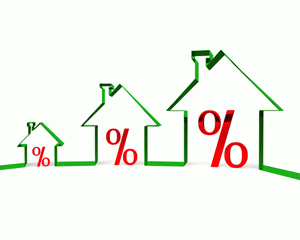
Rental yields on residential investment properties in Auckland are now worse than they were at the height of the last property boom in 2007, according to veteran property investor David Whitburn.
Whitburn is a lawyer and professional property investor with his own substantial residential rental portfolio, but is best known as the author of Prosper with Property and as the immediate past president of the Auckland Property Investors' Association.
He says a notable feature of Auckland's property scene over the last few years has been the entry of mum and dad property speculators to the market.
In 2012 property prices started rising strongly in Auckland suburbs such as Ponsonby, Grey Lynn Westmere and Mt Albert, and then spread rapidly outwards, he said.
"A lot of people who lived there saw the value of their home rise from say $550,000 to $780,000 after spending maybe $40,000 doing it up," he said.
"So they'd use the additional equity to buy another property, do it up and sell it.
"But I don't call that investing, they were traders. And there was a lot of speculation and trading throughout the Auckland region in 2012 and 2013."
Because they were primarily chasing capital gain rather than long term rental income, they were prepared to accept lower gross rental yields (a property's annual rent as a percentage of its purchase price), Whitburn said.
He was aware of properties being purchased with yields as low as 2.2%, although around 4-5% was more common.
Now they are worse than they were in 2007, when yields were in the 5%-6% range, Whitburn (pictured right) said.
That will leave investors with relatively high levels of debt particularly exposed.
"A lot of new investors think low interest rates are normal and that's lolled people into a false sense of security," he said.
Although mortgage interest rate rises had so far been modest, they had a big impact on property investors when they needed to refinance, because of a higher "applied rate" the banks used to assess mortgage applications.
The applied rate is the rate a bank uses to assess how well an investment might perform and is often higher than the rate they actually lend at, providing a kind of stress test on loan applications.
"Even though the [Reserve Bank's] Official Cash Rate has gone up by 0.75%, the applied rate the banks use when assessing loan applications has risen from 6.2% to 7.4% in the majority of cases," Whitburn said.
That made it more difficult for investors to qualify for new loans.
'A bit of fear'
Larger investors were particularly at risk because new lending rules proposed by the Reserve Bank that would apply to investors with five or more properties would require a maximum loan to valuation ratio of 65% over their entire portfolio when they refinanced, he said.
"It's only people who have larger portfolios of more than four properties who are feeling the heat and they tend to have higher debt levels. It's causing a bit of fear," he said.
"If you only have one, two or three investment properties you are below the [banks'] radar. They don't even care if you are in negative equity. As long as you keep making your loan payments, they won't think about it."
Investors were reacting to the changing market conditions in different ways, Whitburn said.
Some were pulling in their horns, but those who had their debt under control and perhaps access to additional cash, were still investing but being very picky about where they bought.
"Auckland has about 163 suburbs and they don't all move up uniformly.
"Some suburbs are going backwards now."
One of those was Papakura, he said.
Some wealthier residents were moving to nearby Takanini putting Papakura's house prices under downward pressure, and retail vacancies were creeping up in the town's shopping strip.
New tenants in the shopping strip were often of lesser quality than those they replaced and retailers were complaining about their rents.
Properties traditionally popular investment suburbs such as Manurewa and Clendon Park were also facing downward pressure.
In general, investors were concentrating far more on rental income than capital gains in lower decile school zones, Whitburn said.
Areas that were on the up included New Lynn and Kelston in west Auckland, while the massive Westgate development project was supporting rising property values in nearby suburbs such as Massey where there was a high proportion of rental properties.
9 Comments
Hypothetically. What rate of return would you need to be in this business, if property values were static. Well over 10% I reckon. To even be there, say 12% to be a reasonable business.
Property has been great because property prices have not been static. If they become static, anybody who is now getting 2-5 % will be in pain, and selling up shorltly afterwards.
Inflation means that even if a price is "static" in real terms, that its actual price is increasing, as are the rents.
Hence a 4% yield today will actually turn into something that looks much better than most alternatives (term deposits, stocks) over the long term.
Consider for instance if one purchased a house in 1970 for $10,000 and it returned 4% ie $8pw, that same property would probably today return $400pw, which of course makes the original return look irrelevant.
Also consider, if I had the option of putting $400k in a property returning 4%PA before tax or putting it in the bank and earning 5%PA before tax, and in both cases spent the 4% less the tax each year and in the case of the bank deposit, saved the extra 1% less tax per annum. So the result after 10 years:
1. With the house - the rent has likely increased 30-60% (depending on what both the market and property location has done, remember 4% yield will indicate a prime location).
2. With the bank deposit - the return (due to the 1% less tax reinvested) has increased just 7%
Low yields are justified with or without capital gains in real terms.
Yes, and no,
Yes, scary for some and especially the OAPs and we can see that from some ppl in here.
No, in that if you are a tax payer and hold debt that far outweighs your deposits then no.
If you are well off and have little on deposit, PIs for one, more savvy investors then I'd suggest no as well because you understand finance.
Really the OBR sets the obvious point that a deposit is an investment and at risk and really it always has been. So its removing a moral hazard IMHO...and rightly so.
On top of that its only likely to be triggered in a very major event and Id suggest such an event will be pretty obvious in coming. The depositors should if they are not half asleep be able to move into "cash like things" or maybe precious metals.
Certainly not assets like housing....though they will be the cause and not the saviour.
regards

We welcome your comments below. If you are not already registered, please register to comment.
Remember we welcome robust, respectful and insightful debate. We don't welcome abusive or defamatory comments and will de-register those repeatedly making such comments. Our current comment policy is here.